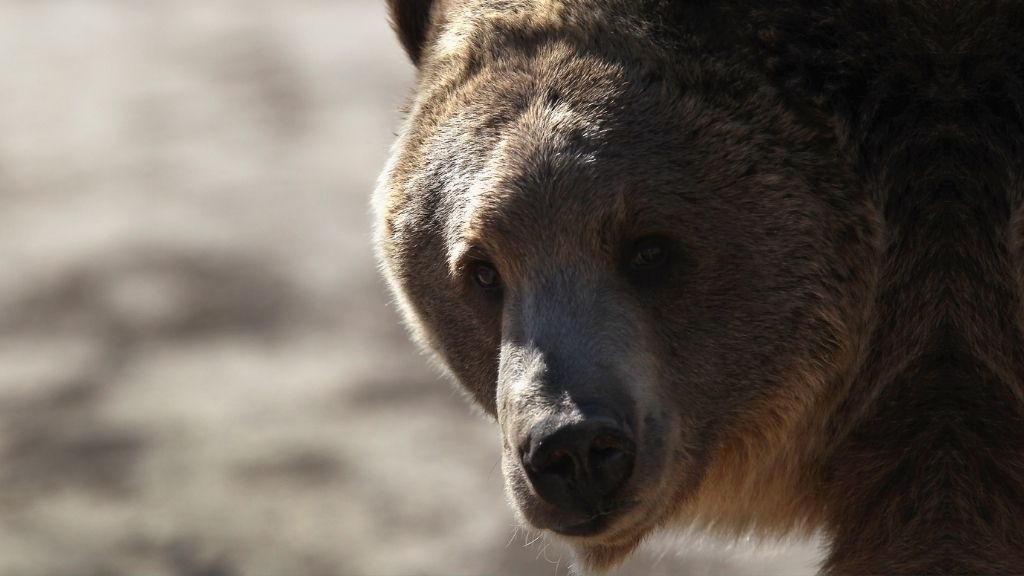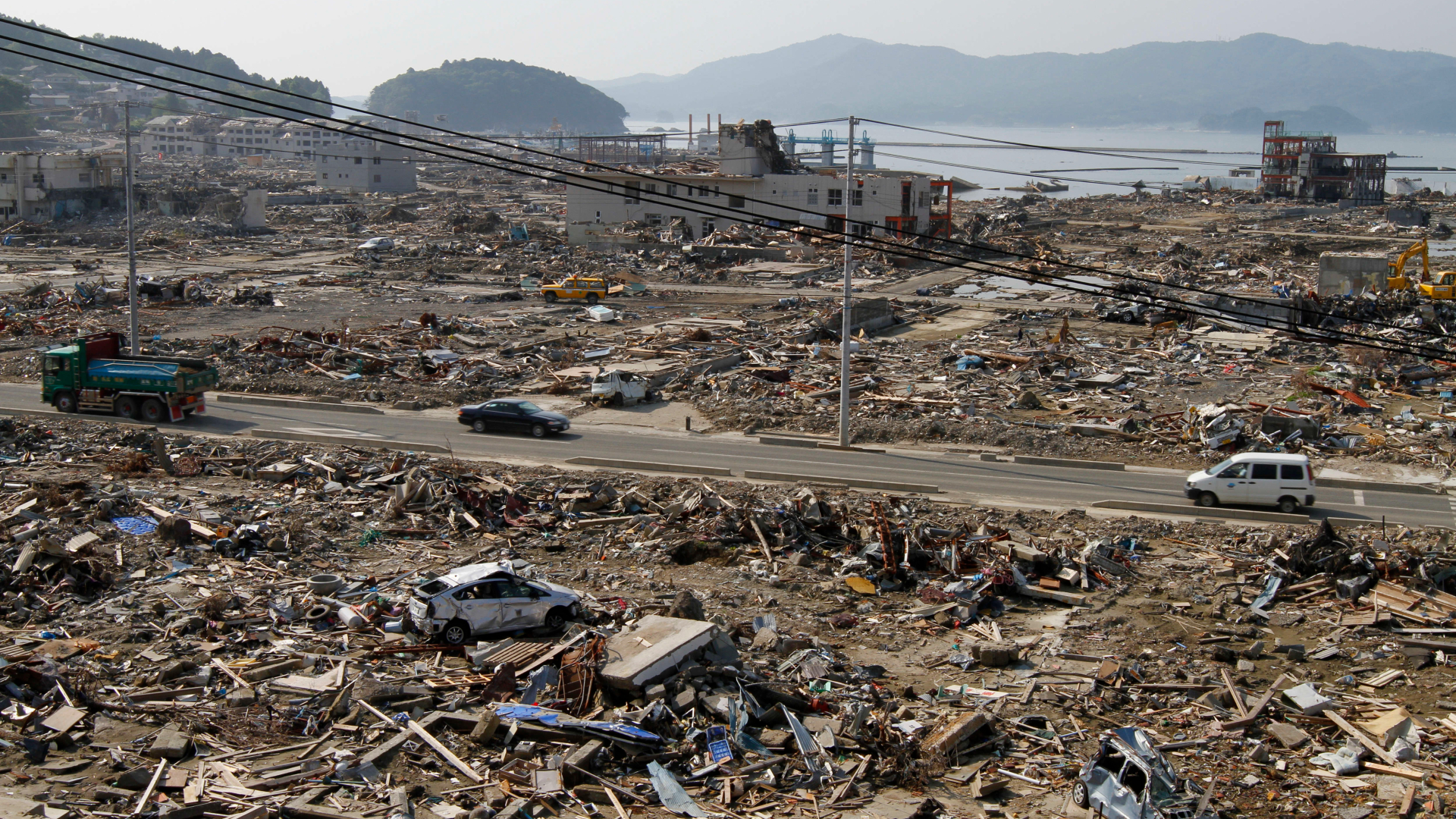Woman killed in unusual grizzly bear attack

Get the world’s most fascinating discoveries delivered straight to your inbox.
You are now subscribed
Your newsletter sign-up was successful
Want to add more newsletters?

Delivered Daily
Daily Newsletter
Sign up for the latest discoveries, groundbreaking research and fascinating breakthroughs that impact you and the wider world direct to your inbox.

Once a week
Life's Little Mysteries
Feed your curiosity with an exclusive mystery every week, solved with science and delivered direct to your inbox before it's seen anywhere else.

Once a week
How It Works
Sign up to our free science & technology newsletter for your weekly fix of fascinating articles, quick quizzes, amazing images, and more

Delivered daily
Space.com Newsletter
Breaking space news, the latest updates on rocket launches, skywatching events and more!

Once a month
Watch This Space
Sign up to our monthly entertainment newsletter to keep up with all our coverage of the latest sci-fi and space movies, tv shows, games and books.

Once a week
Night Sky This Week
Discover this week's must-see night sky events, moon phases, and stunning astrophotos. Sign up for our skywatching newsletter and explore the universe with us!
Join the club
Get full access to premium articles, exclusive features and a growing list of member rewards.
Early Tuesday morning (July 6), a bear attacked and killed a woman while she was camping in western Montana. Local authorities are still searching for the animal.
The attack took place near Ovando, about 70 miles (112 kilometers) northwest of the state capital Helena, according to KGVO News. A statement from Montana Fish, Wildlife and Parks (FWP) noted that, prior to the attack, a video camera at a local business caught footage of the animal, which appeared to be a grizzly bear. Grizzlies are common to Ovando and the surrounding Blackfoot Valley, according to the statement.
As of late Wednesday (July 8), the bear had still not been found, The Washington Post reported. The camper has now been identified as Leah Davis Lokan, a 65-year-old resident of Chico, California, who was passing through the area on a long-distance biking trip. She was accompanied by her sister and a friend, who heard Lokan being attacked by the bear at about 3:30 a.m. local time and drove the animal away with bear spray. The bear initially passed by their campsite about a half-hour earlier, waking the campers and prompting them to secure their food before going back to bed.
"The bear basically came back into the campsite. It wandered into a campsite a couple different times," Powell County Sheriff Gavin Roselles told The Associated Press.
Based on an examination of the bear's footprints and the descriptions of its behavior, FWP determined the animal is likely male and weighs about 400 pounds (181 kilograms), the Post reported. DNA collected at the scene will be used to identify the bear should it get caught in one of the five traps the agency has set so far, according to The Daily Montanan. In addition, helicopters equipped with infrared sensors have already been deployed three times to search for the animal, the agency stated.
Once caught, the bear will be killed, making it the second grizzly to be killed by FWP this summer for fatally injuring a human, FWP official Greg Lemon told the Daily Montanan.
It's not clear why the bear sought out the campsite or attacked Lokan, but Tuesday's attack does not represent "normal bear behavior," Lemon said. "Usually, human and bear conflicts stem from bears protecting food, female bears protecting cubs or surprise encounters that result in the bear feeling threatened and attacking the person. … Going into a campground and attacking a person is not a natural instinct."
Get the world’s most fascinating discoveries delivered straight to your inbox.
This is the second deadly bear attack to occur in the region in recent months. In April, backcountry guide Charles Mock sustained fatal injuries from a male grizzly outside West Yellowstone, The New York Times reported. After the April attack, FWP spokesperson Morgan Jacobsen told the Times that the likelihood of human-grizzly encounters will likely rise as the population of federally protected bears grows and the bears expand their territory. At the same time, the number of people living in the region continues to grow.
In general, conflicts between grizzlies and humans have increased in the Northern Rockies over the past 10 years, as the local bear populations have slowly recovered, according to The Associated Press. Ovando sits at the southern edge of the Northern Continental Divide Ecosystem, where an estimated 1,000 grizzly bears live; in total, fewer than 1,500 grizzlies live in the U.S. south of Canada, according to the National Wildlife Federation. (About 31,000 live in Alaska.)
In the last 20 years, there have been about 20 incidents near the Continental Divide in which people required hospitalization after being injured by bears, the AP reported. And in the past 50 years, 11 fatal bear attacks have taken place in the region, making the occurrence fairly rare. Tuesday's attack counts among those 11, while the April attack took place in the nearby Greater Yellowstone Ecosystem, which hosts a separate population of bears, the Washington Post reported.
Originally published on Live Science.

Nicoletta Lanese is the health channel editor at Live Science and was previously a news editor and staff writer at the site. She holds a graduate certificate in science communication from UC Santa Cruz and degrees in neuroscience and dance from the University of Florida. Her work has appeared in The Scientist, Science News, the Mercury News, Mongabay and Stanford Medicine Magazine, among other outlets. Based in NYC, she also remains heavily involved in dance and performs in local choreographers' work.
 Live Science Plus
Live Science Plus










